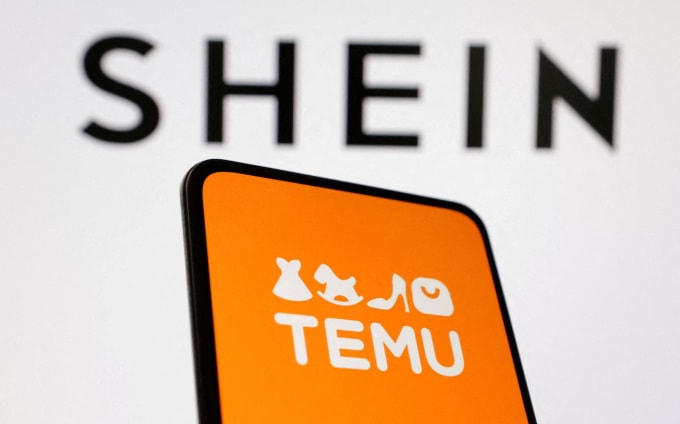The Ministry of Industry and Trade directed Temu to comply with Vietnamese law, otherwise there will be solutions to block this platform.

Since early October, Temu, a subsidiary of PDD Holdings (China) - the group that owns the e-commerce site Pinduoduo - has not officially registered to operate in Vietnam, but users can access app stores on their phones to download the app and make purchases and payments on this platform with the Vietnamese version.
In addition to Temu, recently, other cross-border e-commerce platforms such as Shein, 1688... have also been operating in Vietnam but have not registered with the Ministry of Industry and Trade.
In an official dispatch dated October 26, Minister of Industry and Trade Nguyen Hong Dien requested the Department of E-commerce and Digital Economy to proactively contact Temu’s legal team to request compliance with Vietnamese law. This must be done within October.
If necessary, coordinate with the Ministry of Information and Communications to have appropriate technical solutions to prevent it.
According to regulations, cross-border online retail platforms with Vietnamese domain names, Vietnamese display language, or with more than 100,000 transactions per year from Vietnam must register their operations with the Ministry of Industry and Trade.
This is to ensure compliance with standards on consumer protection, information security and related legal regulations. However, the Department of E-commerce and Digital Economy admits that in reality there are still platforms that do not comply with this regulation.
Leaders of the Ministry of Industry and Trade also requested the Department of E-commerce and Digital Economy to guide consumers to be cautious when shopping online on e-commerce platforms, including the above cross-border platforms.
Authorities recommend that people do not transact with platforms that have not been registered at the E-commerce Management Portal.
The Department of Trade and Digital Economy was also assigned to advise the ministry's leaders to report to the Prime Minister to direct the Ministry of Finance to study a plan to monitor and manage imported goods circulating through unregistered e-commerce platforms.
The Ministry of Industry and Trade also assigned the General Department of Market Management to coordinate with the General Department of Customs to increase supervision, detection, and handling of warehouses and goods gathering points (if any) of unregistered cross-border e-commerce platforms.
In October, the Legal Department reviewed and proposed solutions to handle illegally operating platforms. The Import-Export Department was asked to propose solutions to control goods imported into Vietnam through e-commerce channels.
In November, the Ministry of Industry and Trade assigned the Domestic Market Department to assess the impact on the domestic market when foreign goods penetrate the Vietnamese market through cross-border e-commerce platforms.
The Department of Science and Technology must develop standards and regulations for products under the management of the Ministry of Industry and Trade. This is to help businesses improve product quality and brand, increase consumer confidence and compete for Vietnamese goods.
The business model of e-commerce platforms like Temu is to connect buyers directly with manufacturers. The factory-direct low-cost sales model helps them attract users looking for cheap products. In the beginning, products sold on this platform were advertised heavily, with discounts of up to 70-90%.
At the discussion session in the socio-economic group, many National Assembly delegates were concerned that the Temu tornado with cheap goods from abroad would destroy domestic goods and manufacturing enterprises.
Deputy Prime Minister Ho Duc Phoc said that the cross-border e-commerce platform Temu is also subject to tax like Google, Facebook... He asked the General Department of Taxation to review Temu's tax registration and payment. In case Temu does not pay tax, the management agency will inspect and handle it.